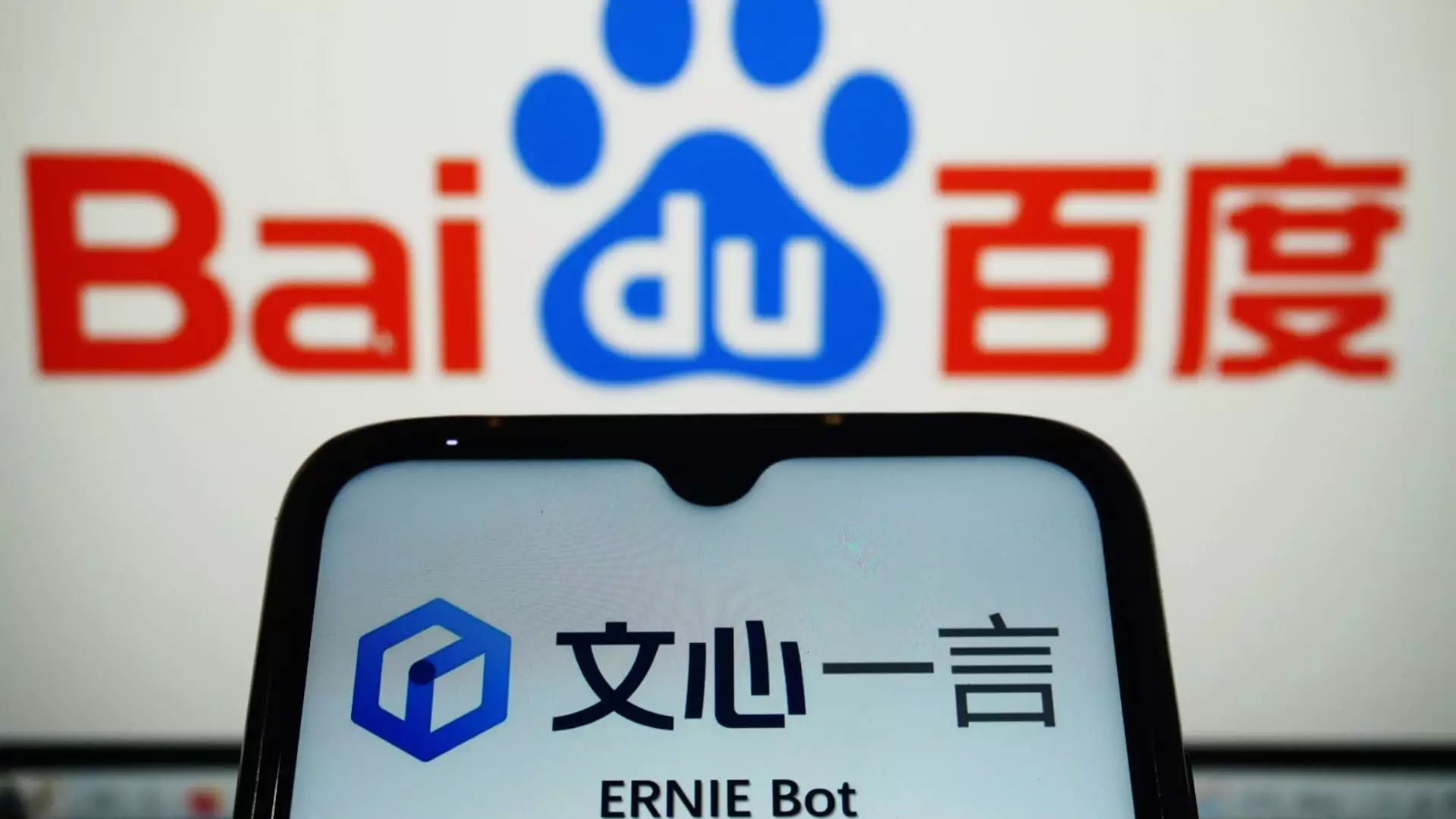On Tuesday, shares of Baidu, one of the most prominent tech companies in China, saw a significant boost, climbing 10.7% in Asian markets. This surge comes in the wake of the weekend announcement regarding two new artificial intelligence models—one being the latest iteration of the foundational “Ernie” model and the introduction of a reasoning model that Baidu claims can rival the well-respected DeepSeek’s R1 model. This news ignited investor enthusiasm, suggesting that Baidu is making strides to recapture its position as a leader in China’s competitive AI landscape.
One could argue that this sudden increase in stock price reflects much more than mere market reaction; it hints at an underlying belief in Baidu’s potential to innovate in an industry that is evolving at breakneck speed. It also sparks essential conversations about what it means to lead in AI and the importance of credibility and verification within the field. As investments flow into Baidu once again, the question arises: Can this uptick be sustained, and what does it mean for the overall tech ecosystem in China?
Technology and Competition: The Ramp-Up
Baidu’s leap into releasing two new AI models is a response to a fierce competition that has seen players like DeepSeek redefine what is achievable in artificial intelligence. The reasoning model, touted to deliver human-like problem-solving capabilities by breaking down complex issues and considering diverse approaches to formulate responses, reflects a broadening of capabilities that AI companies must explore to stay relevant.
Amidst this landscape, Kai Wang, a senior equity analyst for Morningstar, hinted at a “delayed reaction” from investors, emphasizing the evolving narrative around Baidu. The tech giant still struggles to gain the kind of traction enjoyed by other hyperscalers, despite its substantial resources and a storied legacy in the AI sector. This raises an uncomfortable point: While Baidu might have a strong foundation, does it possess the agility required to navigate the unpredictable tides of AI innovation?
Cost Efficiency: A Double-Edged Sword
Baidu’s claims concerning its ERNIE X1 reasoning model rivaling DeepSeek’s R1 at half the cost is a bold assertion that illustrates the cutthroat nature of this sector. However, with the market dynamics in China being fluid, it raises the question of whether such claims of cost-effectiveness can hold up in real-world applications. As Wei Sun from Counterpoint Research noted, the actual competitiveness of Baidu will depend on how well it can deliver on these promises.
The rapid pace of technological advancement often leads to a scenario where pricing becomes a critical determinant of market success. While striving for cost efficiency is admirable, one must also consider the risks associated with potentially compromising performance in pursuit of a lower price point. The fine line between affordability and quality could dictate who survives and flourishes in this AI race.
Open Sourcing: A Strategic Shift
Perhaps one of Baidu’s most significant moves is the open-sourcing of its latest models, a departure from its previous strategy focusing on proprietary technology. Open sourcing represents a shift in philosophy; it invites collaboration while allowing for wider experimentation within the developer community. This strategy could potentially serve two vital purposes: solidify Baidu’s standing as an industry standard and allow the company to expand its market share in a space where adaptability is crucial.
But while this approach opens Baidu’s technology to external innovation, it does also cast a shadow of uncertainty regarding the proprietary advantages they might lose. Companies often guard their intellectual property fiercely; however, in an industry characterized by rapid transformation, fostering community-driven improvements could be a strategic masterstroke.
Looking Ahead: The Real Battle
As the dust settled from the weekend’s announcements, Baidu stands at a crossroads. The road ahead poses enormous challenges, but also unprecedented opportunities. Its capacity to adapt and embrace change could very well dictate the landscape of AI not only in China but worldwide.
Thus, the stakes have never been higher. With a promising product lineup and innovative strategies, the company now faces the herculean task of transforming investor optimism into tangible success. The fervor around AI models grows, but will Baidu harness that energy or remain stagnant? Only time will tell, but it’s a narrative worth watching closely.



Leave a Reply